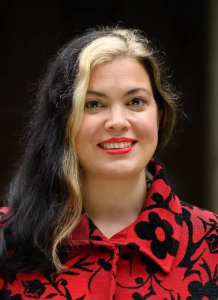Events
OTTRS Speaker Series: “How NASA’s Robot Teams Reveal the Future of Human-AI Collaboration (Or, Ten Provocations for Studying and Crafting Responsible Human-AI Teams)”
Event Start Date: Friday, November 21, 2025 - 12:00 pm
Event End Date: Friday, November 21, 2025 - 1:00 pm
Location: Virtual
UMD students, faculty, staff, alumni, and friends—join us for the OTTRS Speaker Series. (Registration Required)
Abstract:
This talk draws on comparative analysis of NASA’s most successful robotic space missions in the early 21st century to present implications for studies of mixed human-robot and human-AI teams in future partnerships. Building on two decades of ethnography among planetary scientists and mission personnel, I show how teams handle the challenge of large, interdisciplinary human teams working with robotic intelligences in space, and the outcomes of those choices in terms of how they interact with their robots and their data. These choices in organizational structure and culture exert strong shaping effects in terms of interaction with machine intelligences with their robots and their scientific data, presenting novel possibilities for our future interactions with digital tools.
Bio:

Janet Vertesi
Dubbed “Margaret Mead among the Starfleet” in the Times Literary Supplement, Janet Vertesi is associate professor of sociology at Princeton University, where she is also Associate Director of the Keller Center for Innovation in Engineering Education. Her past decade of research, largely funded by the National Science Foundation, examines how distributed robotic spacecraft teams work together effectively to produce scientific and technical results. She is the author of Seeing Like a Rover: How robots, teams and images craft knowledge of Mars (Chicago, 2015) and Shaping Science: Organizations, Decisions, and Culture on NASA’s Teams (Chicago, 2020), as well as co-editor with David Ribes and others of digitalSTS (Princeton, 2019). A longstanding contributor to literatures in Science and Technology Studies, in Critical Computing, and in Computer-Supported Cooperative Work, she is currently building a societally-responsible Design program at Princeton and serves as an advisory board member for the Data & Society Institute and the Electronic Privacy Information Center.